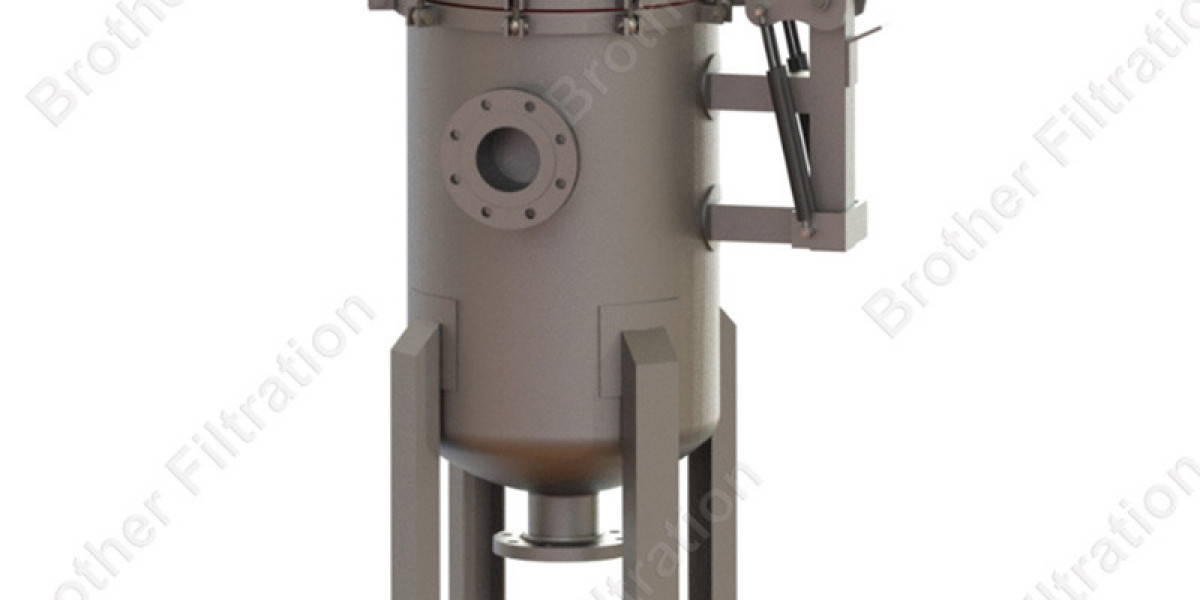The oil and gas industry is one of the most demanding sectors in the world. From upstream exploration to downstream refining, every process involves complex machinery and fluids that must remain pure and free from contaminants. One essential component that ensures smooth operations and equipment longevity is the oil & gas filter. These filters play a critical role in protecting equipment, maintaining process efficiency, and ensuring safety across the entire value chain.
What Are Oil & Gas Filters?
Oil & gas filters are specialized filtration systems designed to remove contaminants such as dirt, water, metal particles, and other impurities from fluids used in industrial processes. They can be applied to various types of fluids, including crude oil, hydraulic oil, lubricants, natural gas, and process water.
Unlike standard filters, oil & gas filters are engineered to withstand extreme temperatures, high pressures, and corrosive environments typical of the oil and gas sector. They ensure that critical equipment such as pumps, compressors, turbines, and engines operate efficiently and without interruption.
Key Types of Oil & Gas Filters
Several types of filters are commonly used in the oil and gas industry, each tailored to specific applications:
Hydraulic Oil Filters – Protect hydraulic systems by removing contaminants that can cause wear, corrosion, or failure of critical components.
Fuel Filters – Ensure fuel purity by eliminating water, sediments, and other particulates that can damage engines and turbines.
Lubrication Oil Filters – Maintain the integrity of lubricating oils, preventing machinery wear and extending service life.
Gas Filters – Remove moisture, liquids, and solid particles from natural gas streams, protecting pipelines and processing equipment.
Separator Cartridges and Coalescers – Specialized filters designed to separate water or fine droplets from oil or gas for cleaner operations.
Benefits of Using Oil & Gas Filters
The use of high-quality oil & gas filters provides multiple benefits for operations and equipment:
Equipment Protection – Prevents damage caused by contaminants, reducing downtime and maintenance costs.
Process Efficiency – Clean fluids maintain optimal flow and performance, enhancing overall operational efficiency.
Extended Lifespan – Filters reduce wear and corrosion, extending the life of expensive machinery.
Safety – Removing hazardous particles and moisture helps prevent accidents, leaks, or system failures.
Compliance – Meets industry standards and regulatory requirements for fluid purity and environmental safety.
Applications Across the Oil & Gas Sector
Oil & gas filters are used at every stage of the industry, from exploration to refining:
Upstream Operations – Protect drilling equipment and separators from sediments and water in crude oil.
Midstream Pipelines – Maintain purity and prevent corrosion in crude oil and natural gas pipelines.
Downstream Refining – Ensure smooth operation of pumps, compressors, and turbines in refineries.
Petrochemical Processing – Remove impurities from chemical feedstocks to guarantee product quality.
By safeguarding machinery and processes, these filters help companies avoid costly downtime, ensure safety, and maintain high-quality standards.
Choosing the Right Filter
Selecting the right oil & gas filter depends on multiple factors:
Fluid Type – Oil, gas, or water-based fluids require different filter designs.
Operating Pressure and Temperature – Determines material and construction specifications.
Contaminant Size and Type – Influences the filter’s micron rating and media choice.
Flow Rate Requirements – Ensures the filter can handle process demands without creating excessive pressure drop.
Working with a trusted filter manufacturer ensures that the chosen filter meets these criteria, providing consistent performance and reliability.
Sustainability Considerations
Modern oil & gas filters are designed not only for efficiency but also for sustainability. Long-lasting, reusable, or recyclable filter cartridges reduce waste, while energy-efficient systems help lower operational costs. Clean filtration also reduces environmental impact by preventing contaminants from entering ecosystems.
Conclusion
Oil & gas filters are critical components in ensuring safe, efficient, and reliable operations in one of the world’s most demanding industries. By removing contaminants, protecting equipment, and maintaining process efficiency, these filters play a vital role in industrial success.
Investing in high-quality oil & gas filters ensures smoother operations, reduced maintenance costs, and enhanced safety, making them indispensable in modern energy and industrial infrastructure.








